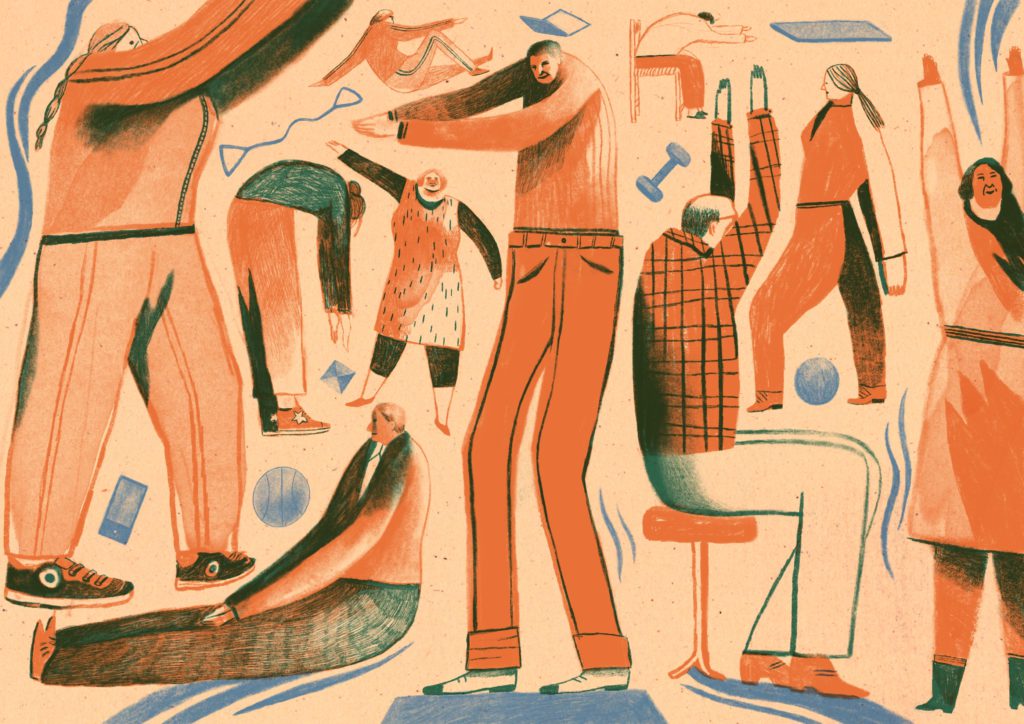
Pau Gasol Valls
Description
« fit for 100 » is an exercise-based support programme for older people to help them maintain and increase strength while participating in fall prevention. Through improved balance and coordination, the programme’s aim is to maintain – and if possible improve – everyday skills, mobility and thus independence and quality of life of older adults.
Context
« Fit for 100 » was initiated and developed in 2005 under the direction of Prof. Dr. Mechling by sports scientists, social workers and care staff – based on training science and gerontological findings. The project started at the Institute for Exercise and Sport Gerontology of the German Sport University of Cologne funded by the State Ministry for Work, Health and Social affairs in North Rhine-Westphalia, (NRW) – (MAGS-NRW), executed in cooperation with the NRW State Seniors’ Association (LSV-NRW), the NRW State Sports Federation (LSB-NRW).
The project was scientifically conducted and evaluated from 2005-2007. As of 2007 it is offered and carried out by numerous geriatric care facilities, institutions and elderly people on their own in several districts, cities and communities.
The aim is at least to maintain, if possible improve, everyday skills, mobility and thus independence and quality of life through improved strength, balance and coordination by compensating age dependent losses. The needs and abilities of the heterogeneous group of the elderly are increasingly taken into account. Alternative exercises are offered for wheelchair users, persons with dementia (mci) can train in segregative as well as in integrative groups with more intensive training and personnel support. A “Fit für 100” online « home-based exercise » is also available.
Technical details & Operations
Based on scientific findings, the “fit for 100” exercise programme is carried out twice a week in a group. The group should consist of no more than 15 people. The training is implemented in the sense of the training principle of repetition and continuity and builds muscle strength in a targeted way with free weights for arms and legs. Other components include a variety of coordinative and sensorimotor exercises and cognitive tasks – in a pleasant atmosphere.
Deployment & Impact
Impact (one year longitudinal study) = 53% increase in hand strength ; increase in mobility in the shoulder by an average of 13.3 cm ; reduction of the time needed to stand up five times by 18%/ 4.5 sec ; improvements in the standing stability ; improvements in the subjective perception of performance and coping with everyday life





